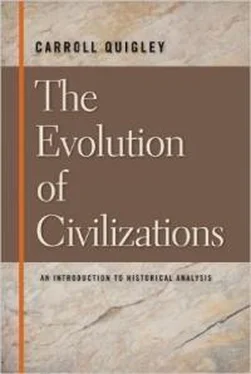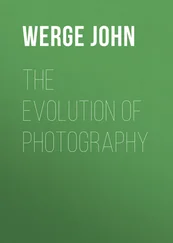Western ideology believed that the world was good because it was made by God in six days and that at the end of each day He looked at His work and said that it was good. This meant that the world was a comprehensible place (one of the basic ideas of Western science) and that its existence unfolded in time (not by instantaneous creation or through eternal existence). The body was also good, being made by God in His own image. Man needed others in order to develop his capacities in time, and he needed his body, his fellow men, and God's help, as well as his own efforts to achieve, over time, salvation in the future. This salvation included the body as well as the soul ("resurrection of the body and life everlasting") and could be achieved by good works (requiring a body and one's fellow men) and God's grace (granted by God Himself taking a human body and living in time in this world). All of these things were clearly stated in the New Testament, and the objections to them arising from Classical dualism were firmly rejected at the first church council held at Nicaea in 325. The full implications of the injunction to "love thy neighbor" were not completely unfolded in these two steps but continue to be so through the present and into the future.
While the aristocratic Classical culture had put the golden age in the past, more democratic Western culture put it (and salvation) in the future. This optimistic and hopeful attitude applied to most aspects of Western life. Its hierarchical aspect appeared originally in the belief that the spiritual rested on the material (not opposed to it) and also came to apply to much of life. This led to a basic distinction (now largely lost) between necessary and important, in which material things were necessary but spiritual things were important.
The democratic and individualistic aspects of the Western outlook were always present, and go back, like other aspects, to the New Testament. They rest on the belief that all men have souls fit for salvation and, in the long run, have equal opportunity to achieve salvation. These ideas also appear in Christ's concern with the downtrodden and oppressed, in the belief that the first and greatest sin was pride (the sin of Lucifer) and that the greatest virtue was humility, in the Beatitudes and in many parables (such as that of the lost sheep). It is worthy of note that all these points are concerned not only with the individual's relationship to himself and to God but also with his relationship to his fellow men. All these, along with the emphasis on good works and the importance of sacraments, show the significance of the social element in Western thought. The same significance was underlined in the idea that man can be fully man and fully please God only in society. This idea was reflected in religion in the idea of the church (the societas perfecta), the belief that salvation could be obtained most readily through the church, the idea of the sacraments (all of which require the presence of at least two persons and most of which require three), the efforts, in the sixth century, to replace anchorites with monks (that is, to replace a late Classical aberration with a system more compatible with Western sociality).
All these different aspects of the Western outlook cluster about the essence of the outlook that we have tried to express in the statement that "Truth unfolds through a communal process." The outlook to which this statement refers lies at the foundation of Western culture and is reflected equally in its religion, its politics, its science, and its economics.
This outlook assumes, first, that there is a truth or goal for man's activity. Thus it rejects despair, solipsism, skepticism, pessimism, and chaos. It implies hope, order, and the existence of a meaningful objective external reality. And it provides the basis for science, religion, and social action as the West has known these.
Second, this attitude assumes that no one, now, has the truth in any complete or even adequate way; it must be sought or struggled for. Thus this outlook rejects smugness, complacency, pride, and personal authority in favor of the Christian virtues and a kind of basic agnosticism (with the implication "We don't yet know everything"), as well as the idea of achievement of good through struggle to reach the good. The earliest great work of German literature, Parzival, has as its subtitle "The Brave Man Slowly Wise." This is typical of the Western ideology's belief that wisdom (or any real achievement) comes as a consequence of personal effort in time. The same idea is to be found in Dante's Divine Comedy, in Shakespeare's tragedies (taken as a whole), and in Beethoven's symphonies.
There are two important ideas here: one is that no one has the whole truth now but that it can be approached closer and closer in the future, by vigorous effort, and the other is that no single individual does this or achieves this, but that it must be achieved by a communal effort, by a kind of cooperation in competition in which each individual's efforts help to correct the errors of others and thus help the development of a consensus that is closer to the truth than the actions of any single individual ever could be. We might call these two aspects the temporal and the social. They are covered in our maxim by the words "unfolds" and "social." There is also a third idea here; namely, that the resulting consensus is still not final, although far superior to any earlier or more individual version. Thus the advance of mankind or of any single individual is an endless process in which truth (or any achievement, even the development of an individual's personality) is constantly approached closer and closer without ever being finished or reached.
We might mention also another phase of this outlook; namely, the idea that the cooperative effort that unfolds truth through a continuously developing consensus is a competitive process. More accurately it is cooperation through competition, as a game is. This refers to a social process that is superficially competitive but fundamentally cooperative, or, viewed in another way, a situation in which individuals compete and even struggle together for a higher social end (the consensus). This is a dialectic process and is one of the heritages from Classical antiquity, where this idea of the emergence of truth from pluralistic debate in the market place is found in the earlier dialogues of Plato and of other thinkers. It is worthy of note that Plato, while retaining the form of the dialogue, really abandoned its function in his later writings (the Republic and those following) by using Socrates as the spokesman of his own ideas that contain the whole truth, while the other speakers contribute nothing to the final achievement since their ideas are erroneous and must be corrected by Socrates.
This idea of the fruitful debate from which truth grows is the basis for the method of medieval intellectual advance (in spite of the erroneous theory so widely accepted that medieval ideas were rigid systems imposed by authority). This conception is of course found behind medieval exposition as in Abelard's Sic et Non or Aquinas's Summa theologica, but it is much more fully realized in the process by which medieval ideas were reached than in the form in which they were presented. However, in both there was a fundamental assumption that each presentation was temporary and not fully perfect and was subject to improvement in a later revision as a consequence of criticism. The idea, so widely spread today that the Summa theologica was a final, complete, and permanent presentation of its subject, was not held at the time by anyone, least of all by Aquinas himself. After all, the Angelic Doctor offered the world at least three versions of this subject—the Summa … contra Gentiles, the Summa theologica, and the incomplete but really much improved Compendium Theologiae.
Читать дальше










